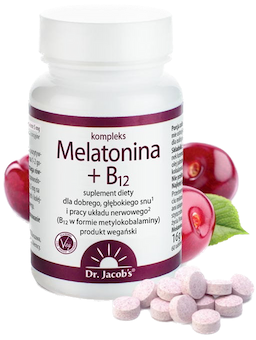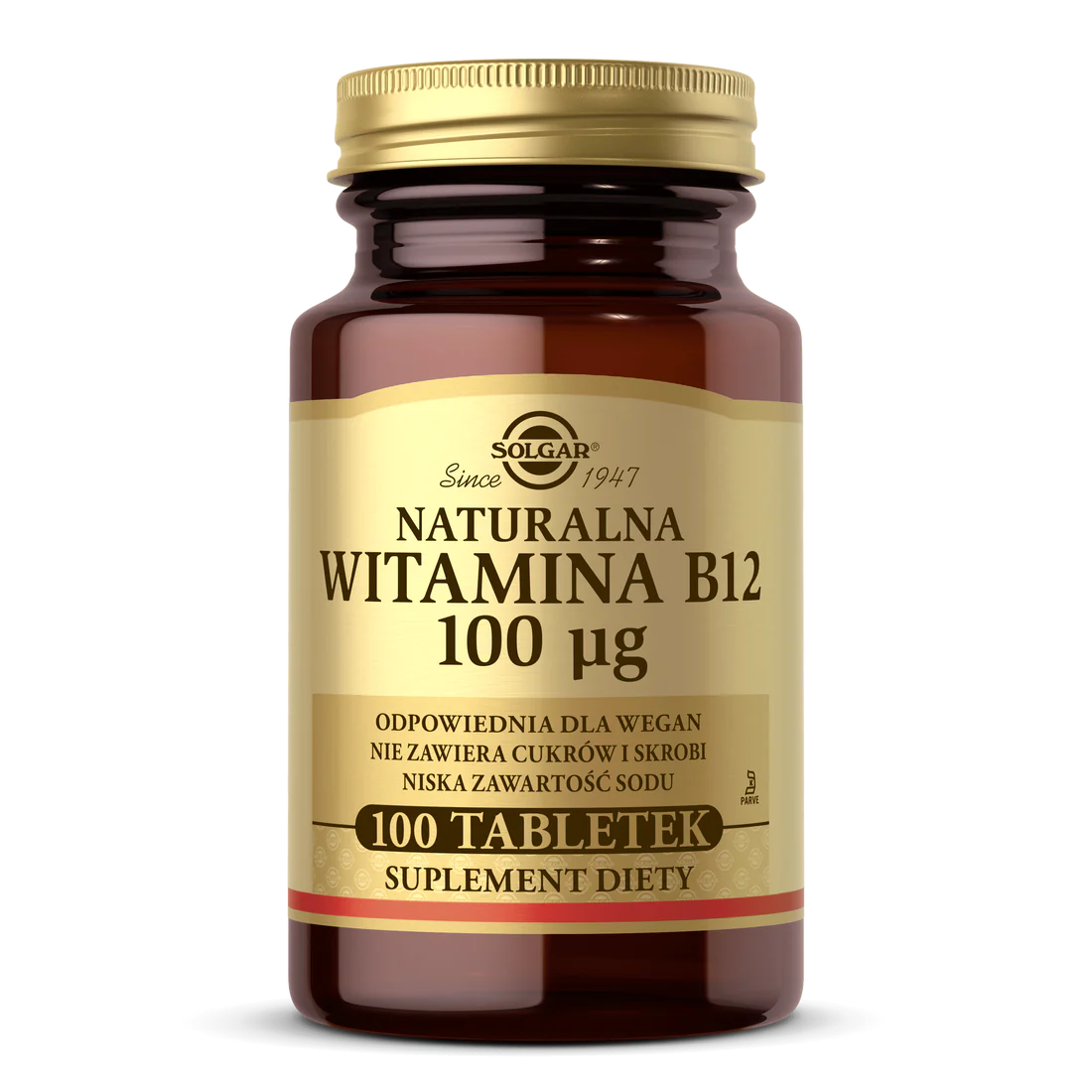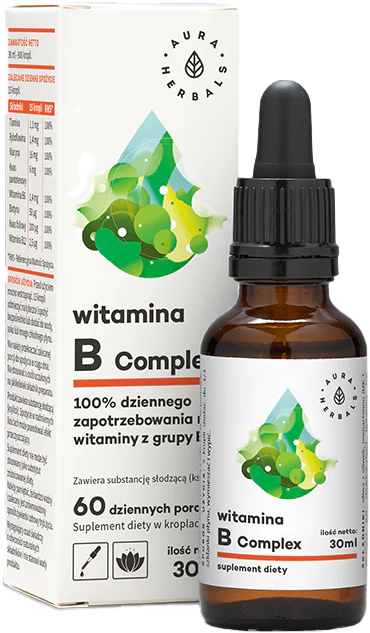Vitamin B3 - what it is, effects, occurrence, deficiency, excess
Vitamin B3 (also known as niacin or vitamin PP) is a water-soluble vitamin that is responsible for converting food into energy. From this article you will learn what vitamin B3 is, how it works and what a deficiency leads to.


Learn more about our editorial process
.

Learn more about our editorial process
.

Learn more about our editorial process
.

Learn more about our editorial process
.
Why you can trust us
Articles on Natu.Care are written based on scientific research, data from government websites and other reliable sources. The texts are written in cooperation with doctors, nutritionists and other health and beauty experts. Articles are reviewed before publication and during significant updates.
.Learn more about our editorial process
.Information about advertisements
Content on Natu.Care may contain links to products from the sale of which we may receive a commission. When creating content, we adhere to high editorial standards and take care to be objective about the products discussed. The presence of affiliate links is not dictated by our partners, and we select the products we review ourselves completely independently.
.Learn more about our terms and Conditions
.Have problems getting up in the morning and feel constantly tired? It's very possible that you are missing out on valuable vitamin B3. If you enjoy turkey or chicken breast, you will be able to get rid of its deficiency very quickly. You will then negate fatigue, improve the condition of your skin and also improve your brain function. How else does vitamin B3 work? What are its sources? What are the consequences of a deficiency and excess? Answers to these and other questions await you below!
Description of contents:
- What is vitamin B3? .
- Vitamin B3 - properties .
- Requirement for vitamin B3 .
- Sources of vitamin B3 .
- Vitamin B3 deficiency .
- Vitamin B3 excess .
- Vitamin B3 supplementation .
- Vitamin B3 during pregnancy .
- Vitamin B3 and alcohol .
- Vitamin B3 interactions with medications .
- Summary .

Odkryj, co dla Twojej urody może zrobić Natu.Care Glow Stories
Skóra, włosy, paznokcie: Glow Stories
Wesprzyj prawidłowy stan skóry, włosów i paznokci i ochroń komórki przed stresem oksydacyjnym!
Sprawdź cenę
Glow Stories to formuła aktywnych składników, które zostały starannie dobrane wedle najnowszych badań naukowych. Znajdziesz w nich biotynę, cynk i miedź pielęgnujące zdrowie włosów i promiennej cery. Ponadto cynk jest odpowiedzialny także za zachowanie zdrowych paznokci. Mądra suplementacja zadba o Twoje piękno od środka.Julia Skrajda, dietetyk kliniczny
See also:
- B vitamins [properties + where they occur] .
- Vitamin B1 (thiamine) [properties + where it occurs] .
- Vitamin B2 [properties + where it occurs] .
- Niacin [what it is + effects and side effects] .
- NMN [what it is + effects and opinions] .
- Vitamin B5 (pantothenic acid) [what it is + properties and excess]
- Vitamin B6 [where it occurs + deficiency, excess and properties]
- Biotin [what it is + properties and side effects] .
- Biotin for hair [what it gives and effects + ranking]
- Vitamin B9 (folic acid) [what it is + properties and excess] .
- Vitamin B12 [what it helps with + where it occurs] .
- Vitamin C [properties + dosage] .
- Magnesium [what it is in + properties] .
- Best magnesium [ranking + pharmacist's opinion] .
What is vitamin B3?
.
Vitamin B3 is a water-soluble B vitamin that has many important functions in the body. Vitamin B3 assists in converting food into energy, acts as an antioxidant, builds DNA, and produces good cholesterol. It is found in foods such as liver, chicken breast and tuna.
Vitamin B3 and its derivatives have a neuroprotective effect in neurodegenerative diseases such as Alzheimer's or Parkinson's disease..
 .
.
Julia SkrajdaDietitian
..
What else do we call vitamin B3?
.
Vitamin B3 is otherwise niacin or vitamin PP. The latter name refers to the properties of vitamin B3 - it is an anti-pelagic agent. Pelagra is a disease caused by vitamin B3 deficiency. It manifests as dementia, dermatitis or diarrhoea, and in the long term even leads to deathand.
Niacin is the generic name for compounds such as nicotinic acid, nicotinamide and other related derivatives. Where does the name vitamin B3 come from? There is no hidden story here. It is simply the third B vitaminand.
Vitamin B3 - properties
.
The colourful naming history of vitamin B3 is not all. It also offers us numerous health-promoting propertiesand.
Research suggests that vitamin B3 relieves depression and anxiety. What's more, it has been used to treat schizophrenia and insomnia, as well as neurosis.
 .
.
Julia SkrajdaDietitian
.How does vitamin B3 work?
.
Controls cholesterol levels
.
Research suggests that vitamin B3 can reduce bad cholesterol levels by 5 to as much as 25%. It is also helpful in the production of good cholesterol. Vitamin B3 can increase it by as much as 15 to 35%. What this all boils down to is that it takes an active role in controlling cholesterol levels in the bodyand.
Reduces blood pressure
.
Vitamin B3 is indirectly responsible for the proper function of blood vessels. It increases blood flow and also lowers blood pressure. One study of 12,000 people suggests that taking vitamin B3, may be associated with a lower 2% risk of hypertensionand.
Improves brain function
.
Some studies have linked vitamin B3 intake to positive effects on certain mental illnesses. Selected types of schizophrenia can be treated with vitamin B3, as its supplementation reverses cell damageand.
Omega acids, especially omega-3 also have a positive effect on brain function. Would you like to learn more about them? Feel free to do so!
Improves skin condition
.
Vitamin B3 protects skin cells from sun damage. It may prevent some skin cancers. One study suggests that taking 500 mg of vitamin B3, reduces the risk of skin cancerand.
Collagen is a real superhero for our skin.
Want to know the best collagen? Or are you interested in facial collagen? Fancy checking out which collagen to drink is worth buying? Plus, I've got some more fish collagen and sea collagen for you. The choice is yours!
Cures erectile dysfunction
.
Vitamin B3 has a positive effect on blood flow and can therefore treat erectile dysfunction. Studies suggest that taking 1,500 mg of vitamin B3 daily, contributes to improved sexual function in menand.
You may be interested in: Zinc - properties, occurrence, deficiency, excess
.How else does vitamin B3 work?
.
- Prevents coronary heart disease.
- Preventing coronary heart disease.
- Provides positive effects on cognitive function.
- Provides a positive effect on cognitive function.
- Provides support for the treatment of rheumatoid arthritis.
- Provides support for the treatment of rheumatoid arthritis.
- Responsible for the metabolism of nutrients.
- Promotes the metabolism of nutrients.
- Improves the function of the digestive system and the nervous system.
- Improves the function of the digestive system and the nervous system.
Vitamin B3 is involved in the synthesis of steroid hormones (mainly cortisol and sex hormones). It therefore plays an important role in terms of mood and stress regulation. A deficiency of vitamin B3 can cause impaired concentration, mood changes and depressive or anxious states..
 .
.
Julia SkrajdaDietitian
.- .
Dr Jacob's Melatonin + B12

- Active ingredients: melatonin, vitamin B12
- Form: sucking pastilles .
- Dosage: 1 lozenge per day .
- Sufficient for: 60 days .
Product description
Sweet pleasures in the evening are rather forbidden. Well, unless it's cherry lozenges with melatonin and vitamin B12, whichóre going to improve the quality of your sleep.
One tablet in the evening will shorten your sleep time and stop you waking up.
One tablet in the evening will shortenóyour time to fall asleep and stop you waking up during the night. The addition of vitamin B12 will improve the functioning of the nervous system, making you even better rested.
The following tablets will help to improve the quality of your sleep.
Pros and cons
Sweet pleasures in the evening are rather forbidden. Well, unless it's cherry lozenges with melatonin and vitamin B12, whichóre going to improve the quality of your sleep.
One tablet in the evening will shorten your sleep time and stop you waking up.
One tablet in the evening will shortenóyour time to fall asleep and stop you waking up during the night. The addition of vitamin B12 will improve the functioning of the nervous system, making you even better rested.
The following tablets will help to improve the quality of your sleep.
Additional information
Sweet pleasures in the evening are rather forbidden. Well, unless it's cherry lozenges with melatonin and vitamin B12, whichóre going to improve the quality of your sleep.
One tablet in the evening will shorten your sleep time and stop you waking up.
One tablet in the evening will shortenóyour time to fall asleep and stop you waking up during the night. The addition of vitamin B12 will improve the functioning of the nervous system, making you even better rested.
The following tablets will help to improve the quality of your sleep.
User review
Sweet pleasures in the evening are rather forbidden. Well, unless it's cherry lozenges with melatonin and vitamin B12, whichóre going to improve the quality of your sleep.
One tablet in the evening will shorten your sleep time and stop you waking up.
One tablet in the evening will shortenóyour time to fall asleep and stop you waking up during the night. The addition of vitamin B12 will improve the functioning of the nervous system, making you even better rested.
The following tablets will help to improve the quality of your sleep.
SOLGAR natural vitamin B12

- Active ingredients: vitamin B12
- Form: tablets .
- Packaging: 100 tablets .
- Dose: 1 tablet daily .
- Sufficient for: 100 days .
Product description
The dietary supplement is a source of valuable vitamin B12 in a form that is easily absorbed by humans - cyanocobalamin. This biologically active form of vitamin B12 has many very important protective functions for the body.
Vitamin B12 supports the functioning of the immune system. It also contributes to reducing feelings of fatigue and tiredness. Its important function is also to take part in the metabolism of homocysteine, an amino acid thatós naturally formed in the human body.
Vitamin B12 is a very important protective function.
Pros and cons
The dietary supplement is a source of valuable vitamin B12 in a form that is easily absorbed by humans - cyanocobalamin. This biologically active form of vitamin B12 has many very important protective functions for the body.
Vitamin B12 supports the functioning of the immune system. It also contributes to reducing feelings of fatigue and tiredness. Its important function is also to take part in the metabolism of homocysteine, an amino acid thatós naturally formed in the human body.
Vitamin B12 is a very important protective function.
Additional information
The dietary supplement is a source of valuable vitamin B12 in a form that is easily absorbed by humans - cyanocobalamin. This biologically active form of vitamin B12 has many very important protective functions for the body.
Vitamin B12 supports the functioning of the immune system. It also contributes to reducing feelings of fatigue and tiredness. Its important function is also to take part in the metabolism of homocysteine, an amino acid thatós naturally formed in the human body.
Vitamin B12 is a very important protective function.
User review
The dietary supplement is a source of valuable vitamin B12 in a form that is easily absorbed by humans - cyanocobalamin. This biologically active form of vitamin B12 has many very important protective functions for the body.
Vitamin B12 supports the functioning of the immune system. It also contributes to reducing feelings of fatigue and tiredness. Its important function is also to take part in the metabolism of homocysteine, an amino acid thatós naturally formed in the human body.
Vitamin B12 is a very important protective function.
Aura Herbals Vitamin B Complex drops
Product description
Vegan drops with a complex of B vitamins. A daily serving covers 100% of the requirement for these vitamins. B vitamins are important for the proper functioning of the body, especially for the nervous system, metabolism and energy production.
Pros and cons
Vegan drops with a complex of B vitamins. A daily serving covers 100% of the requirement for these vitamins. B vitamins are important for the proper functioning of the body, especially for the nervous system, metabolism and energy production.
Additional information
Vegan drops with a complex of B vitamins. A daily serving covers 100% of the requirement for these vitamins. B vitamins are important for the proper functioning of the body, especially for the nervous system, metabolism and energy production.
Vitamin B3 requirements
- .
The correct dosage of vitamin B3 depends on your age. Find out what the requirement is for each age groupand.
- .
|
Age . |
Daily recommended dose of vitamin B3* |
|
0-6 months |
2 mg |
|
7-11 months |
5 mg |
|
1-3 years |
6 mg |
|
4-6 years |
8 mg |
|
7-12 years |
12 mg |
|
13+ years old female |
14 mg |
|
13+ years old men |
16 mg |
*Nutritional standards for the Polish population
Similar to other compounds, vitamin B3 is required more during pregnancy and lactation. Women who are expecting a baby should provide their bodies with 18 mg of this compound. Ladies who are breastfeeding, on the other hand, will fulfil their daily requirement of vitamin B3 after taking 17 mgand.
Sources of vitamin B3
- .
Red meat, poultry, fish, cereals or legumes. You are sure to find ample supplies of vitamin B3 in such products. Looking for more specific suggestions? Check out the table with the 10 products richest in vitamin B3and.
- .
17 mg
|
Product . |
Vitamin B3 content per 100 grams |
|
| . |
Rice bran |
34 mg |
|
Cooked tuna |
22 mg |
|
|
Sardelles |
20 mg |
|
|
Cooked skipjack |
19 mg |
|
|
Fried beef liver . |
17.5 mg |
|
|
Cooked lamb liver . |
||
|
Cooked lamb liver |
||
|
Dried shiitake mushrooms |
14.1 mg |
|
|
Anchovies raw |
14 mg |
|
|
Breaded chicken breast |
13.7 mg |
|
|
Milled turkey |
12.6 mg |
."Vitamin B3 can be supplied from the diet, but it is also synthesised in the human body with the involvement of other B vitamins from tryptophan.
.It is found in soya products, dairy products or semolina, among others. It is assumed that 60 mg of tryptophan contributes to the production of 1 mg of vitamin B3 equivalent in the body."
- .
A delicious dose of vitamin B3, or aromatic rice with curry chicken and vegetables
- .
Clinical nutritionist Joanna Serwińska-Jania has prepared a great recipe especially for you. Aromatic rice with curry chicken and vegetables is a tasty way to give your body a solid dose of vitamin B3. Before you start cooking, you first need to go shopping. What products should you stock up on?
Ingredients:
- White rice: 100 g .
- Milled turmeric: 0.6 g (2 pinches) .
- Olive oil: 5 g (1 teaspoon) .
- Chicken breast: 100 g .
- Curry: 2 g (half a teaspoon) .
- Broccoli: 200 g .
- Carrots: 45 g (1 piece) .
- Carrot: 5 g (1 clove) .
- Milled ginger: 0.6 g (2 pinches) .
Are you done shopping? Then rush to the kitchen and get cooking! Are you far from Gordon Ramsay? Don't worry, after 25 minutes and eight simple steps your chicken curry rice will be ready.
Cooking is easy.
Preparation:
- Cook the rice according to the instructions on the packet, adding the turmeric to the water. .
- Wash the meat, dice it and add the curry spice.
- Rinse the meat and add the curry spice.
- Heat the oil in a frying pan and throw in the meat. .
- Wash the vegetables, cut the broccoli into small florets and the carrot (after peeling) into cubes. .
- Add the vegetables to the meat and water with ⅓ cup of water. .
- Simmer the whole thing for about 6 minutes stirring to make the vegetables soft. .
- Peel the garlic and squeeze it through a press. Along with the minced ginger, add it to the vegetables.
- Add the garlic to the vegetables.
- Stir the whole thing and simmer until the meat and vegetables are soft. .
- Add the cooked and drained rice and mix everything well. .
Vitamin B3 deficiency
.
Vitamin B3 deficiency is most often caused by a lack of a balanced diet. While it is rare in developed countries, it is common in developing countriesand.
Other causes of vitamin B3 deficiency include:
.
- excessive alcohol consumption, .
- disorders of the gastrointestinal tract, .
- long-term treatment with isoniazid (an anti-tuberculosis agent), .
- genetic conditionsand. .
."Vitamin B3 deficiency is not usually observed in the population. It may affect alcoholics, people with intestinal disease or Hartnup's disease."
Agata Grzelaczyk, nutritionist
.
.
Symptoms
.
Although vitamin B3 deficiency is rare, our body will quickly let us know when it is lacking. What should concern usand?
Symptoms of vitamin B3 deficiency:
- fatigue, .
- vomiting, .
- diarrhea, .
- headaches, .
- memory problems, .
- apathy, .
Vitamin B3 deficiency disease - pelagra
.
Long-term vitamin B3 deficiency can result in pelagra. This is a disease that attacks cells that function throughout the body. It manifests with the above symptoms and, in a later stage, also a thick, dark and scaly skin rash. Pelagra also leads to brain and nerve damage, as well as oral ulcersand.
Contraceptive pills contribute to the 'leaching' of B vitamins from the body. Mainly vitamin B3 and vitamin B1..
 .
.
Julia SkrajdaDietitian
..
How to cure?
The treatment of vitamin B3 deficiency is not complicated and usually involves taking supplements. In most cases, your doctor will choose products that contain no less than 20 mg of this compound. The exception is people with advanced vitamin B3 deficiency. Then independent treatment of specific damage to the body (if it has occurred) may be necessary.
.
Vitamin B3 overdose
.
It is impossible to overdose vitamin B3 by eating products that are rich in itand. The only way to end up with an excess of vitamin B3 is to irresponsibly exceed the dosage prescribed by your doctor or to take more supplements than recommended by the manufacturer.
."Excess vitamin B3 supplied with the diet is excreted in the urine. In contrast, excess vitamin B3 from dietary supplements can cause what is known as the 'flash effect'.
."This is a common phenomenon.
This manifests itself as reddening of the skin and a tingling sensation. What's more, high doses of vitamin B3 can damage the liver, and increase the risk of developing type 2 diabetes by as much as 34%."
Agata Grzelaczyk, nutritionist
.Symptoms
.Just as our body does not like to be deficient in something, it is also bothered by an excess of certain substances. This is precisely the case with vitamin B3.
.Symptoms excess vitamin B3 in the bodyand:
- nausea,
.- vomiting,
.- severe reddening of the skin,
- somnolence,
.- diarrhoea,
.- itchy skin,
.Caution!
.If you experience the above symptoms, stop taking vitamin B3 immediately and see your doctor.
Vitamin B3 - supplementation
.Most of us are sufficient with vitamin B3 provided with our diet. More often than not, supplementation is a last resort reserved for people with malabsorption disorders, alcoholics or those who suffer from genetically limited absorption of vitamin B3. In such cases, see a doctor who will recommend healthy and safe supplementationand.
Why is it on prescription?
.Vitamin B3 has been linked to liver damage and strokes, so doctors only prescribe it in selected cases. Most commonly, a prescription for vitamin B3 will be given to people who cannot take statins and whose cholesterol is significantly elevatedand.
How long can supplements be taken?
.More often than not, we are not talking about supplementation, but about treatment. Vitamin B3 in the form of a medicine should be taken for as long as your doctor prescribes and not a day longer. When it comes to supplements, on the other hand, follow the manufacturer's recommendations and make sure not to exceed the daily recommended doseand.
.Contraindications
.Every doctor will interview you before prescribing vitamin B3 to make sure it is safe for you. Vitamin B3 cannot be combined with selected medications. It is also not recommended for people who have had problems with the liver, kidneys or stomach ulcersand.
Vitamin B3 in pregnancy
.Vitamin B3 is important for the health of pregnancy. Research suggests that it may prevent birth defects of the spine, heart or kidneys in the baby. The requirement for vitamin B3 in pregnancy is 18 mgand.
Vitamin B3 and breastfeeding
.Women who are breastfeeding should also make sure they have adequate vitamin B3. Mother's milk is the only source of valuable vitamins and minerals for the newborn. Therefore, ladies who are breastfeeding should take 17 mg of vitamin B3 dailyand.
..Note!
.Both in pregnancy and during breastfeeding you should not supplement vitamin B3. The increased need should be met through a balanced diet. An exception to this situation is otherwise recommended by your doctorand.
Vitamin B3 and alcohol
.Alcohol can interact with vitamin B3. Consumption of alcoholic beverages during supplementation or treatment with vitamin B3, may result in an increased risk of liver damage. Furthermore, this action increases the possible side effects of taking niacin, such as itching or redness of the skinand.
It doesn't stop there, alcohol-dependent people can also suffer from vitamin B3 deficiency. Excessive consumption of alcoholic beverages leads to the depletion of vitamin B3 from the body .
Interactions of vitamin B3 with drugs
.Vitamin B3, whether in drug or supplement form, can react with a number of medications. Who is included in the risk groupand?
Vitamin B3 can react with:
- anticoagulants,
.- zinc,
.- statins,
.- chromium,
.- allopurinol,
..Caution!
.Are you taking these or other medications? Under no circumstances supplement vitamin B3 on your own. This can lead to serious damage to your body. Only your doctor can recommend a healthy and safe supplementation for you. Take care of your health and do not forget it.
See also:
- Thyroid tests [what to do + standards + results]
- Blood tests [how often to perform + how to prepare]
.- The liver [symptoms of diseases + how to take care of it and what to avoid]
- Fatty (greasy) liver [what it is + causes + symptoms]
.- Liver tests [what they are + when to perform]
.- Liver supplements [ranking + pharmacist's opinion]
- Tablets for the liver [ranking + pharmacist's opinion]
.Summary
..Remember:
.
- Vitamin B3 is a water-soluble B vitamin.
- Vitamin B3 is a water-soluble B vitamin.
- Vitamin PP or niacin is another name for vitamin B3.
- Vitamin B3 is a water-soluble B vitamin.
- Reduces blood pressure, controls cholesterol and improves skin condition - this is how vitamin B3 works.
.- Adult women should take 14 mg of vitamin B3 per day, when the male body requires 16 mg.
- The most vitamin B3 can be found in rice bran and cooked tuna.
- The most vitamin B3 can be found in rice bran and cooked tuna.
- Alcoholism and gastrointestinal disorders lead to vitamin B3 deficiency.
.- A lack of vitamin B3 in the body manifests fatigue, headaches or diarrhoea, and if untreated leads to pelagia.
.- Symptoms of excess vitamin B3 include nausea, redness of the skin or diarrhoea.
.- Do not supplement vitamin B3 on your own.
.- Alcohol negatively affects vitamin B3 levels in the body.
.- Vitamin B3 can react with a number of medications.
- Vitamin B3 can react with a number of medications.
.FAQ
..Where is vitamin B3 found and what products have the most of it?
.Vitamin B3, or niacin, can be found in meat products, peanuts, food yeast, fish and grain products or shitake mushrooms. The highest amount of vitamin B3 can be found in rice bran - as much as 34 mg in 100 g.
.Who should supplement with vitamin B3?
.Vitamin B3 is naturally found in many foods, so a deficiency can be caused primarily by malnutrition or a lack of a balanced diet. Indications for vitamin B3 supplementation also include:
- excessive alcohol consumption,
.- long-term intake of tuberculosis medication,
.- genetic factors,
- excessive consumption of alcohol,
- long-term intake of tuberculosis drugs,
- long-term intake of tuberculosis drugs.
- intestinal and kidney problems,
.Contraindications to vitamin B3 supplementation include gout, asthma and allergies.
.What is the best form of vitamin B3?
.Vitamin B3 is mainly found in three forms: nicotinic acid, nicotinamide and inositol hexanicotinate. The best absorbed form of vitamin B3 is nicotinic acid. However, be careful with it during supplementation. Too high doses can cause the so-called flush effect, which manifests itself as a feeling of warmth, flushing or redness on the face.
.How to check the concentration of vitamin B3?
.Vitamin B3 levels are tested by a urine test or in a blood test venous test. The blood test does not require any preparation. Blood can be taken at any time of day and you do not need to be fasting. The only recommendation is to consume more fluids to increase the volume of blood in the vessels.
.Can vitamin B3 help in the treatment of skin diseases?
.Yes, research shows the positive effects of vitamin B3 on the skin. It helps alleviate acne and promotes the treatment of hyperpigmentation, excessive peeling of the epidermis and inflammation. It helps retain water in the body, stimulates collagen production, and has antioxidant and photoprotective effects. Its derivative, niacinamide, is an important ingredient in many cosmetics, including face creams, wrinkle creams, face serums or eye creams.
.Can vitamin B3 lower cholesterol levels?
.Vitamin B3 can help to lower cholesterol levels, especially LDL (so-called bad cholesterol) and triglycerides. Importantly, it also helps to raise HDL, or 'good' cholesterol, by up to 15-35%.
.When to take vitamin B3?
.Supplementing vitamin B3 - in whatever form - is best taken with or between meals, with plenty of fluids and in small doses.
.Can vitamin B3 be overdosed?
.A dietary overdose of vitamin B3 is very difficult. Irresponsible supplementation and taking doses higher than those recommended by your doctor can lead to an excess of vitamin B3. It is accepted that amounts above 3 grams are enough to lead to liver damage or the development of gout, and a single intake of more than 1 gram can cause hypervitaminosis.
..Sources
..See all
.Chen, A. C., Martin, A. J., Choy, B., Fernández-Peñas, P., Dalziell, R. A., McKenzie, C. A., Scolyer, R. A., Dhillon, H. M., Vardy, J. L., Kricker, A., St. George, G., Chinniah, N., Halliday, G. M., & Damian, D. L. (2015). A Phase 3 Randomized Trial of Nicotinamide for Skin-Cancer Chemoprevention. New England Journal of Medicine, 373(17), 1618-1626. https://doi.org/10.1056/NEJMoa1506197
Duggal, J. K., Singh, M., Attri, N., Singh, P. P., Ahmed, N., Pahwa, S., Molnar, J., Singh, S., Khosla, S., & Arora, R. (2010). Effect of Niacin Therapy on Cardiovascular Outcomes in Patients With Coronary Artery Disease. Journal of Cardiovascular Pharmacology and Therapeutics, 15(2), 158-166. https://doi.org/10.1177/1074248410361337
Jonas, W. B., Rapoza, C. P., & Blair, W. F. (1996). The effect of niacinamide on osteoarthritis: A pilot study. Inflammation Research, 45(7), 330-334. https://doi.org/10.1007/BF02252945
Niacin. (2012). In LiverTox: Clinical and Research Information on Drug-Induced Liver Injury. National Institute of Diabetes and Digestive and Kidney Diseases. http://www.ncbi.nlm.nih.gov/books/NBK548176/
Office of Dietary Supplements-Niacin. (n.d.). Retrieved 17 March 2023, from https://ods.od.nih.gov/factsheets/Niacin-HealthProfessional/
Palawaththa, S., Islam, R. M., Illic, D., Rabel, K., Lee, M., Romero, L., Leung, X. Y., & Karim, Md. N. (2022). Effect of maternal dietary niacin intake on congenital anomalies: A systematic review and meta-analysis. European Journal of Nutrition, 61(3), 1133-1142. https://doi.org/10.1007/s00394-021-02731-9
Redzic, S., Hashmi, M. F., & Gupta, V. (2022). Niacin Deficiency. In StatPearls. StatPearls Publishing. http://www.ncbi.nlm.nih.gov/books/NBK557728/
.Ren, X., Yang, Z., Shao, B., Yin, S., & Yang, X. (2015). B-Vitamin Levels in Human Milk among Different Lactation Stages and Areas in China. PLOS ONE, 10(7), e0133285. https://doi.org/10.1371/journal.pone.0133285
Snaidr, V. A., Damian, D. L., & Halliday, G. M. (2019). Nicotinamide for photoprotection and skin cancer chemoprevention: A review of efficacy and safety. Experimental Dermatology, 28(S1), 15-22. https://doi.org/10.1111/exd.13819
Xu, X. J., & Jiang, G. S. (2015). Niacin-responding subset of schizophrenia - a therapeutic review. European Review for Medical and Pharmacological Sciences, 19(6), 988-997.
Zhang, Z., Liu, M., Zhou, C., He, P., Zhang, Y., Li, H., Li, Q., Liu, C., & Qin, X. (2021). Evaluation of Dietary Niacin and New-Onset Hypertension Among Chinese Adults. JAMA Network Open, 4(1), e2031669. https://doi.org/10.1001/jamanetworkopen.2020.31669
Editorials
Meet the team


Editor
Graduate of Journalism and Artes Liberales at the University of Warsaw. Since 2017, he has been working with the biggest portals in Poland and abroad as an editor. Previously worked for 3 years in one of the leading pharmaceutical companies - he knows the health and beauty industry inside out. In his free time, he most enjoys playing tennis or skiing.
![Vitamin B12 - where it occurs in the diet and in products [table].](https://cdn-resources.natu.care/uploads/1/balanced_diet_nutrition_healthy_eating_concept_food_sources_rich_vitamin_b12_cobalamin_kitchen_table_1_b84f75bda2.jpg)
Find out where vitamin B12 is found and which products will provide you with it.

Vitamin PP also known as niacin or vitamin B3 supports the proper functioning of the body.
![What is NMN? Effects, effects, side effects [supplements].](https://cdn-resources.natu.care/uploads/1/science_background_with_molecule_atom_abstract_structure_science_medical_background_3d_illustration_1_a5ec4d9cec.jpg)
Everything you want to know about NMN: properties, effects, safety and expert opinions.

